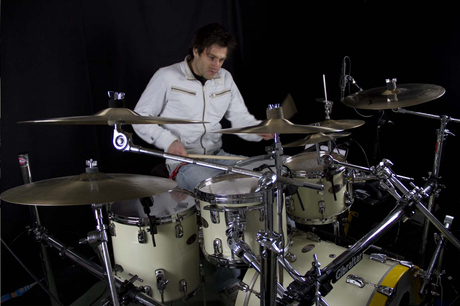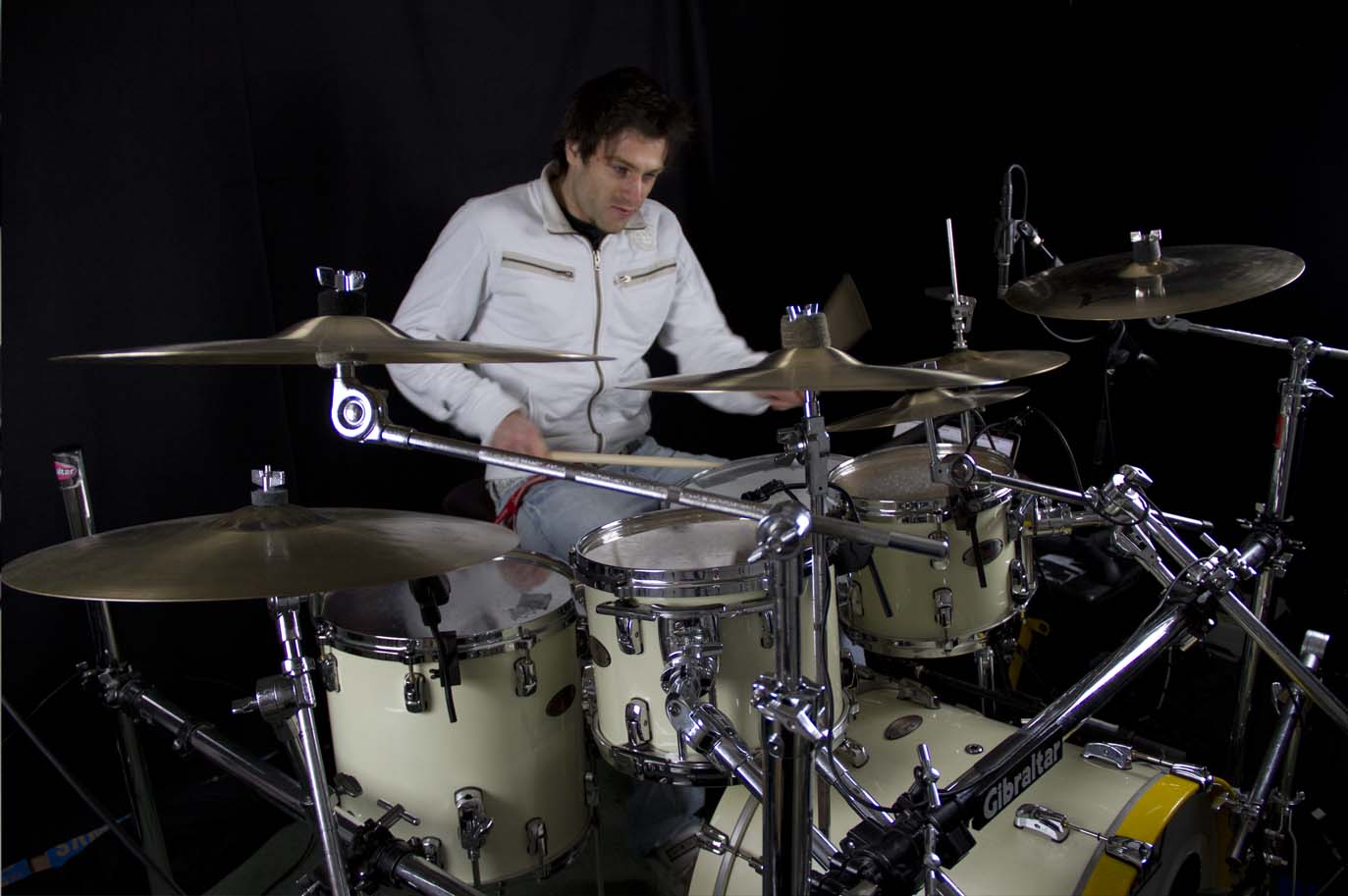Electronic drums and Online Session Drumming
Tim Kitchen's insight into the world of OSD

Want all the hottest music and gear news, reviews, deals, features and more, direct to your inbox? Sign up here.
You are now subscribed
Your newsletter sign-up was successful

Increasingly the drummers that discover the world of online session drumming are playing electronic kits. Perhaps they don't have space for a full acoustic set up, or they have to play at home and live in a built up area.
Many are doubtful that customers will want electronic drum tracks in their songs so they resign themselves to charging less than us acoustic folks because, in their mind, they are offering an inferior service.
So how much of this is true and where do electronic drums fit in the future of Online Session Drumming?
An Easier Start
First off, if you're on a budget it's a lot easier to get a good sounding result on an electronic kit. A LOT easier. The room, the pre amps, microphones, tuning, and to an extent the mixing and processing are all taken out of the equation instantly. And these areas are the main areas that many beginner OSDs struggle with most.
The inbuilt sounds on many electronic kits are adequate for some OSD jobs and if the client is simply after a stereo mix, the quickest and easiest way to offer them this is just to take stereo outputs from the brain and email them across.
But this is barely scratching the surface of what electronic kits can offer, and in my opinion doesn't even begin to do them justice in terms of the impact they can have on OSD-ing.
Software like Superior Drummer is quietly transforming the way a lot of commercial records are made, and it's not hard to see why. The sounds are phenomenal - the best-tuned kits recorded by the best engineers with the best mics and pre amps in the best studios in the world, and far beyond what most (perhaps any?) acoustic drummers could achieve on their own. Hooking up an electronic kit via MIDI to Superior Drummer puts you at the stool of an awesome tool.
Want all the hottest music and gear news, reviews, deals, features and more, direct to your inbox? Sign up here.
And electronic drums are the tool that give us the fantastic sound achievable in Superior Drummer et al without losing the human feel and the orchestration of a real drummer. Electronic kits are an interface between this near-flawless sound and human expression.
Then of course there are the editing benefits of using MIDI triggered tracks. While our software is becoming more intelligent at helping us edit audio tracks as if they were MIDI tracks, it's still a fair distance off. The ability to instantly speed up or slow down a MIDI drum track by a couple bpm should not be overlooked, as should the ease at which sections can be swapped around, the hi hat taken from 1/8ths to 1/4s in the verse etc. Editing MIDI drums vs. editing acoustic drums is like fishing with a net vs. fishing with a spear.
Of course acoustic drum recording has been launching its own fight back with the increasing use of sample programs like Drumagog, Superior Drummer and ApTrigga to 'beef up' acoustic drum tracks. You know my attitude to this: if it makes the tracks sound better, I say use it. There will always be people (both drummers and clients, luckily!) that resist the new fad and prefer to stick to the traditional way of doing things, and that's entirely OK.
But what do clients think?
Most people would be able to tell a raw acoustic track from an electronic track trying to mimic this raw sound. But once you've added all the processing, beefed that acoustic track up with samples and made it release-ready, the line has blurred to an extent where many would be hard pressed to hear the difference any more.
This fact was outlined recently by a video I was sent from electronic Online Session Drummer Dirk Forsdyke who had spotted an interesting video from fellow eOSD Ash Garbett (www.mashdrums.com) where Ash proves exactly how blurred the lines have become between the sound of electronic and acoustic.
This video illustrates the approach I've been recommending for a while to eOSDs who are worried about the negative preconception many clients will have with electronic drums.
Rather than give them a chance, many musicians still think of horrendous keyboard MIDI demo tracks when they read the phrase 'electronic drums', unaware that every week commercial releases feature electronic drum tracks with casual listeners and musicians in the audience none the wiser.
For eOSD's who are worried about pitching for jobs with an electronic kit, I recommend letting the sound do the talking. If the client is paying for a great sounding drum track, why do they have to know beforehand whether it's going to be recorded using electronic or acoustic drums?
If this sounds like deception I'm not advocating telling lies.
If they ask whether you use electronic or acoustic, tell them. In fact I'd tell them afterwards whether they ask or not. If they're happy with the result they shouldn't mind the process used to get those great sounding tracks.
And once they find out that they can change the kick sound, speed up the track, double up the hats a week, month or year from now without having to pay for re recording, I doubt they're going to be complaining too much.
Ash's approach with the video is the best promotional work I've seen from an eOSD yet. He lets his playing do the talking and lets the client answer for themselves the most popular criticism most folks have with electronic drums. He recognised the sticking point and faced it head on without actually trying to actively change anyone's opinions.
They are left to make up their own minds in a very persuasive way.
Conclusions
I've often said that were I starting from scratch with OSD-ing, I'd grab a TD20, Superior Drummer and a cheap MIDI interface and be done with it. While I would never part with my Reference or lose that beautiful ride, the studio/noise issue alone would be a headache I certainly wouldn't miss!
Every so often there's a real game changer in audio. Whether it's the invention of recording, multi tracking, or more recently the switch to digital, things happen which seem kind of slow at the time but looking back on them we see their true impact. While I'm not suggesting that electronic drum kits are the new multi track recording, I think they're going to play a larger and larger role in the future of music production and I urge us all to be open to the possibilities they offer and keep our eyes and ears open for milestones that indicate the direction that music is heading.
Rich is a teacher, one time Rhythm staff writer and experienced freelance journalist who has interviewed countless revered musicians, engineers, producers and stars for the our world-leading music making portfolio, including such titles as Rhythm, Total Guitar, Guitarist, Guitar World, and MusicRadar. His victims include such luminaries as Ice T, Mark Guilani and Jamie Oliver (the drumming one).
